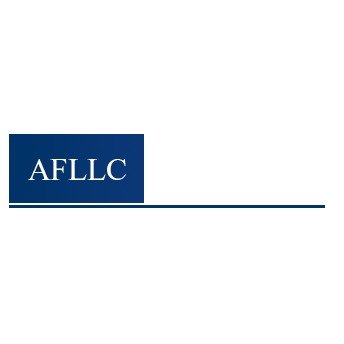Best Sanctions & Export Controls Lawyers in Sharjah
Share your needs with us, get contacted by law firms.
Free. Takes 2 min.
List of the best lawyers in Sharjah, United Arab Emirates
About Sanctions & Export Controls Law in Sharjah, United Arab Emirates
Sanctions and export controls law in Sharjah, United Arab Emirates, forms part of a comprehensive legal and regulatory framework designed to ensure that trade in goods, technology, and services complies with both domestic and international obligations. The primary goals of these laws are to safeguard national security, meet the UAE's commitments to the United Nations and other multinational agreements, prevent the proliferation of weapons of mass destruction, and deter illicit financial flows. The UAE, including Sharjah, is recognized for its robust approach to enforcement, particularly in sectors such as dual-use goods, sensitive technologies, and transactions with sanctioned countries or entities.
Businesses and individuals operating in or through Sharjah must comply with a range of federal regulations as well as international sanctions, as issued by the United Nations Security Council and other bodies. Violations can result in significant penalties, criminal charges, and reputational risks. Navigating these regulations can be complex, especially for organizations involved in cross-border trade, finance, shipping, and logistics.
Why You May Need a Lawyer
Seeking legal advice in the field of sanctions and export controls is crucial for several reasons. Common situations where professional assistance is valuable include:
- Understanding whether a particular transaction, product, or technology is subject to export controls or sanctions
- Ensuring compliance when dealing with entities or individuals from countries subject to international sanctions
- Obtaining the required licenses or permits for the export or re-export of goods from Sharjah
- Providing guidance on internal compliance programs and due diligence processes
- Responding to governmental investigations, audits, or enforcement actions pertaining to potential violations
- Representing clients in administrative or criminal proceedings relating to sanctions or export controls
- Navigating the complexities of financial sanctions, including asset freezes and restrictions on transactions
- Advising multinational companies on harmonizing local legal requirements with global compliance programs
An experienced lawyer can help identify risks, interpret the laws, and implement policies to mitigate potential liabilities.
Local Laws Overview
Sanctions and export controls in Sharjah are primarily governed by UAE Federal Law, which applies across all emirates. Notable aspects include:
- UAE Federal Law No. 13 of 2007 on Commodities Subject to Import and Export Control, which regulates the trade of strategic goods, including dual-use items and technology.
- Cabinet Resolutions and Ministerial Decrees that periodically update the list of controlled goods, destinations, and sanctioned parties, often incorporating decisions from the United Nations Security Council and international partners.
- Foreign Asset Control Regulations that address the freezing and unfreezing of assets, as well as the restriction of financial transactions involving designated individuals or entities.
- Customs Laws in Sharjah, administered at the port and free zone levels, that govern the physical movement of goods and may require specific documentation or declarations for sensitive items.
- Criminal penalties and administrative sanctions for violations, which can include heavy fines, imprisonment, revocation of business licenses, and confiscation of goods.
As regulations can change frequently in response to geopolitical developments, ongoing diligence is essential for any person or business engaged in international trade from Sharjah.
Frequently Asked Questions
What are sanctions and export controls?
Sanctions are legal restrictions on trade, financial activities, or transactions with certain countries, entities, or individuals, often for political or security reasons. Export controls are regulations that govern the cross-border transfer of specific goods, technologies, and services that could pose risks to national or international security.
Who is subject to sanctions and export controls laws in Sharjah?
All individuals and entities in Sharjah, including residents, companies, and foreign nationals operating within the emirate, must comply with relevant sanctions and export controls laws.
What items are commonly regulated under export controls?
Controlled items often include military equipment, dual-use goods (civilian items with military applications), certain chemicals, advanced electronics, encryption software, and sensitive technologies.
What are the consequences of violating sanctions or export controls in Sharjah?
Violations can result in criminal prosecution, heavy fines, imprisonment, asset seizures, and the suspension or revocation of business licenses.
How can I determine if my transaction is subject to a sanction or control?
A careful review of current UAE regulations and relevant international lists is required. Due diligence, screening counterparties, and seeking legal advice are recommended steps.
Is it possible to obtain a license to export controlled goods from Sharjah?
Yes, but you must apply through the appropriate authority. Approval is based on a range of factors, including the item's classification, its intended use, and the destination country or end-user.
Can a lawyer assist if I am being investigated for a suspected violation?
Yes, legal counsel can provide guidance, communicate with authorities on your behalf, prepare necessary documentation, and represent you during proceedings.
What should companies do to comply with sanctions and export controls laws?
Implement comprehensive compliance programs, provide regular employee training, maintain accurate records, and conduct regular audits to ensure ongoing adherence to the laws.
Are there exemptions or exceptions to sanctions and export controls?
Certain exemptions may apply, such as for humanitarian aid or specific types of goods, but these are limited and subject to strict regulatory oversight.
How often do sanctions and export controls regulations change in Sharjah?
Regulations can change quickly, often in response to shifts in international relations or new United Nations Security Council decisions. Regular monitoring and consultation with legal professionals is advised.
Additional Resources
For more information and official guidance, you may refer to these organizations and authorities:
- UAE Ministry of Economy - Responsible for issuing and enforcing export control regulations
- UAE Federal Customs Authority - Provides guidance on the import and export of goods through UAE ports
- Sharjah Customs Department - Local enforcement of customs and trade regulations
- UAE Financial Intelligence Unit - Oversees financial sanctions compliance and anti-money laundering measures
- Ministry of Foreign Affairs - Publishes lists of sanctioned persons, entities, and countries
- Sharjah Chamber of Commerce - Offers support and information for businesses involved in cross-border trade
- United Nations Security Council Sanctions Committee - For current lists of international sanctions
These bodies can be valuable sources of official information, updates, and compliance materials.
Next Steps
If you need legal assistance regarding sanctions and export controls in Sharjah, begin by gathering all relevant documents and information about your case or business operations. Consider consulting a specialized lawyer who has expertise in UAE federal and local laws relating to international trade and sanctions. A qualified legal professional can clarify the applicable rules, help you determine your obligations, guide you through compliance processes, and represent you in interactions with authorities if required.
Taking proactive steps, such as conducting compliance audits and seeking timely legal advice, can help you avoid potential pitfalls and ensure that your activities remain within the bounds of Sharjah and UAE law.
Lawzana helps you find the best lawyers and law firms in Sharjah through a curated and pre-screened list of qualified legal professionals. Our platform offers rankings and detailed profiles of attorneys and law firms, allowing you to compare based on practice areas, including Sanctions & Export Controls, experience, and client feedback.
Each profile includes a description of the firm's areas of practice, client reviews, team members and partners, year of establishment, spoken languages, office locations, contact information, social media presence, and any published articles or resources. Most firms on our platform speak English and are experienced in both local and international legal matters.
Get a quote from top-rated law firms in Sharjah, United Arab Emirates — quickly, securely, and without unnecessary hassle.
Disclaimer:
The information provided on this page is for general informational purposes only and does not constitute legal advice. While we strive to ensure the accuracy and relevance of the content, legal information may change over time, and interpretations of the law can vary. You should always consult with a qualified legal professional for advice specific to your situation.
We disclaim all liability for actions taken or not taken based on the content of this page. If you believe any information is incorrect or outdated, please contact us, and we will review and update it where appropriate.













